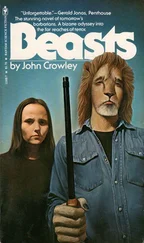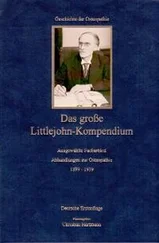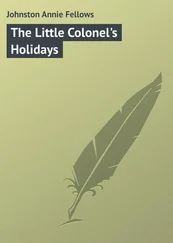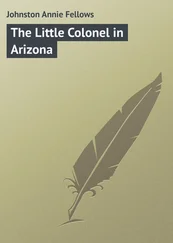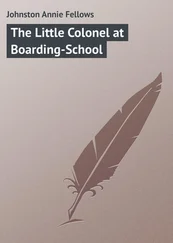Among many other and odder beliefs, his father-in-law was sure that a man can’t think or feel clearly if he can see his own shadow. (He thought also that looking at oneself in the mirror immediately before retiring caused bad, or at least troubling, dreams.) He always sat in the shade or faced into the sun, as he now sat in the wrought-iron love seat by “The Syrinx” with a stick between his knees to rest his hairy hands on, and a gold chain glowing on his stomach as the sun played with it. August sat at his feet listening or perhaps only politely seeming to listen to the old man, whose voice reached Drinkwater as a murmur, one murmur among many, the cicadas, the lawn mower Ottolo pushed in widening circles, the piano in the music room where Nora was practicing now, her chords running together like tears down a cheek.
She liked mostly the feel of the keys beneath her fingers, liked the thought of them being solid ivory and ebony. “What are they made of?” “Solid ivory.” She stroked them in harmonic sets of six and eight at a time, no longer really practicing, only testing the plangency as her fingertips tested the smoothness. Her mother wouldn’t notice it was no longer Delius she was playing or trying to play, her mother had no ear, she said so herself, though Nora could see the shapely whorl of her mother’s ear where she sat cheek in hand at the drum table, playing her cards or looking at them anyway. For a moment her long earrings were still, till she looked up to take another card from the pile and everything moved, earrings shook, necklaces swung. Nora slid from her polished stool and came to stare at her mother’s work.
“You should go outside,” Violet said to her without looking up. “You and Timmie Willie should go down to the lake. It’s so hot.”
Nora didn’t say that she had just returned from there, because she had told her mother that already, and if she hadn’t understood then, there seemed no reason to insist on it. She only looked down at what her mother had laid out.
“Can you make a house of cards?” she asked.
“Yes,” Violet said, and went on looking. This way Violet had of seizing first not the most obvious sense of what people said to her but some other, interior echo or reverse side of it was a thing that baffled and frustrated her husband, who sought in her sybilline responses to ordinary questions some truth he was sure Violet knew but couldn’t quite enunciate. With his father-in-law’s help, he had filled volumes with his searchings. Her children, though, hardly noticed it. Nora shifted from foot to foot for a moment waiting for the promised structure, and when it didn’t appear forgot it. The clock on the mantelpiece chimed.
“Oh.” Violet looked up. “They must have had their tea already.” She rubbed her cheeks as though suddenly waking. “Why didn’t you say something? Let’s go see what’s left.”
She took Nora’s hand and they went to the French doors that led out to the garden. Violet picked up a wide hat that lay on the table there, hut stopped when she had it on, and stood looking out into the haze. “What is it in the air?” she said.
“Electricity,” Nora said, already crossing the patio. “That’s what Auberon says.” She squinted her eyes. “I can see it, all red and blue squiggles, when I do this. It means a storm.”
Violet nodded, and started across the lawn slowly, as though making progress through an unfamiliar element, to where her husband waved to her from the stone table. Auberon had just done taking a picture of Grandy and the baby, and now he brought his instrument toward the table, making a motion to gather his mother into his field of focus. He went about his picture-taking solemnly, as though it were duty not pleasure. She felt a sudden pity for him. This air!
She sat, and John poured her tea. Auberon put his camera before them. The vast cloud defeated the sun, and John looked up at it, resentful.
“Oh! Look!” Nora said.
“Look!” Violet said.
Auberon opened the camera’s eye, and closed it again.
“Gone,” Nora said.
“Gone,” Violet said.
The advancing edge of the occluded front swept invisibly across the lawn, stirring hair and turning lapels and leaves to show their pale undersides. It cut through the broken front of the house, lifting a card on the card-table and riffling the pages of five-finger exercises on the piano. It swung the tassels of scarves hung on sofas, it snapped the edges of drapes. Its cold oncoming wedge rose up through the second floor and the third and then thousands of feet into the air, where the rainmaker minted his first fat drops to throw on them.
“Gone,” August said.
Insnar’d in flowers, I fall on grass.
—Marvell
All on a summer morning Smoky dressed himself to wed, in a white suit of yellowed linen or alpaca that his father had always said once belonged to Harry Truman, and there were the initials on the inside pocket, HST; it was only when he came to consider it for a wedding suit (old not new) that he realized the initials could after all stand for somebody else, and that his father had kept up the joke through his life and then perpetuated it beyond without cracking a smile. The sensation wasn’t unknown to Smoky. He had wondered if his education weren’t the same kind of posthumous fun (revenge on his betraying mother?) and though Smoky could take a joke, he did as he shot his cuffs at himself in the bathroom mirror feel a little at a loss and wish his father had given him some man-to-man advice on weddings and marriage. Barnable had hated weddings and funerals and christenings, and whenever one seemed imminent would pack socks, books, dog, and son and move on; Smoky had been to Franz Mouse’s wedding reception and danced with the starry-eyed bride, who made him a surprising suggestion; but that was a Mouse wedding after all and the couple were separated already. He knew there must be a Ring, and he patted his pocket where he had it; he thought there should be a Best Man, though when he wrote so to Daily Alice she wrote that they didn’t believe in that; and as for Rehearsals, she said when he mentioned them, “Don’t you want it to be a surprise?” The only other thing he was sure of was that he shouldn’t see his bride till she was led up the aisle (what aisle?) by her father. And so he wouldn’t, and didn’t peek in the direction he thought her room lay (he was wrong) when he went to the john. His walking shoes stuck out thick and unfestive from beneath his white cuffs.
The wedding was to be “on the grounds,” he had been told, and Great-aunt Cloud, as oldest there, would conduct him to the place—a chapel, Smoky surmised, and Cloud with that surprised air said yes, she supposed that’s exactly what it was. It was she Smoky found waiting for him at the top of the stairs when at last he shyly emerged from the bathroom. What a comforting presence he found her, large and calm in a June dress with a bunch of late violets at her bosom and a walking-stick in her hand. Like him she wore hard shoes with a glum expression. “Very, very good,” she said, as though a hope had proved out for her; she held him at arm’s length and inspected him through blue-tinted glasses for a moment, and then offered him her arm to take.
“I think often of the patience of landscape gardeners,” Cloud said as they went through the knee-deep sedge of what she called the Park. “These great trees, some of them, my father planted as infants, only imagining the effect they would have, and knowing he would never live to see the whole. That beech—I could almost join hands around it when I was a girl. You know there are fashions in landscape gardening—immensely long fashions, since the landscapes take so long to grow. Rhododendrons—I called them rum-de-dum-dums when I was a child, helping the Italian men to plant these. The fashion passed. So difficult to keep them cut back. No Italian men to do it for us, so they grow jungly and—ouch!— watch your eyes here.
Читать дальше

